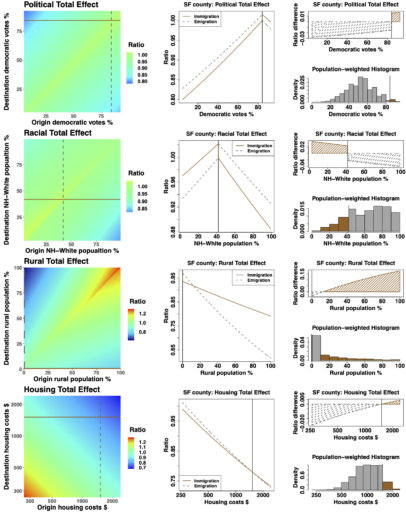
The California Exodus, where droves of population are leaving California and settling in other U.S. states, has recently received broad media coverage, but less attention in scientific research. In a recent paper published in Journal of Mathematical Sociology, NCASD researchers Peng Huang and Carter Butts analyze the population redistribution pattern in the United States. They employ valued exponential-family random graph models to examine the network system of inter-county migration flows. They introduce a protocol that visualizes the complex effects of potential underlying mechanisms, and perform in silico knockout experiments to quantify their contribution to the California Exodus. Results show that racial dynamics contribute to the California Exodus, urbanization ameliorates it, and political climate and housing costs have little impact. Moreover, the severity of the California Exodus depends on how one measures it, and California is not the state with the most substantial population loss. The paper demonstrates how generative statistical models can provide mechanistic insights beyond simple hypothesis-testing.

